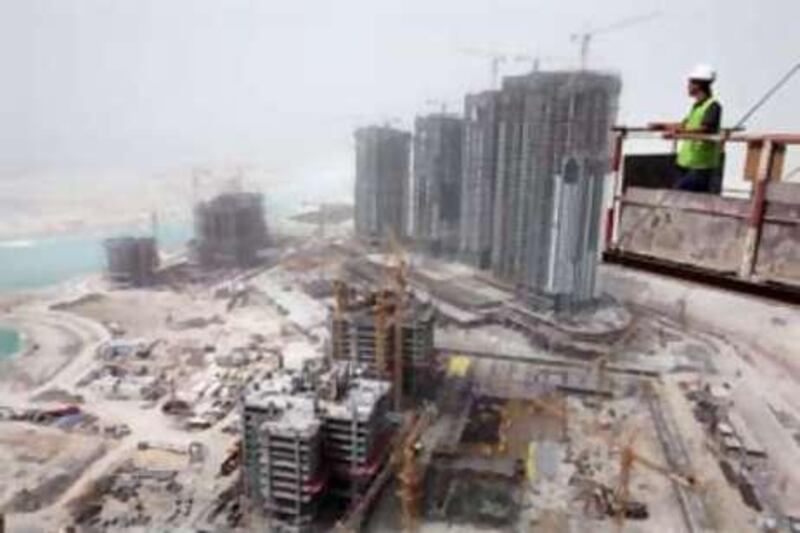Construction costs will fall by a further 10 per cent next year as activity slows across the world and liquidity restrictions threaten the feasibility of local projects. Contractors will also become more aggressive in their search for work, according to EC Harris, the UK-based construction consultancy firm. After growing at a rate of 20 per cent year-on-year over the past few years, overall construction costs are expected to decline further next year after falling steadily in recent months.
This follows contractors being hit by a surge in prices of construction materials, particularly steel, in the first six months of this year. The price for a tonne of steel reinforcement bar now stands at Dh1,652 (US$450), after peaking at Dh6,000 in July, according to figures from Mesteel.com. The price of steel plates and beams has also dropped by about 15 per cent, while the price of cement is capped at Dh340 per tonne.
"With liquidity emerging as a key threat in the region, current levels of growth will be restricted in the short to medium term," said Mark Prior, a partner at EC Harris . "After a significant year-on-year high of 20 per cent construction inflation, it is evident that we will start to see this change." Mr Prior added that a combination of slowing demand for construction materials in global markets, falling commodity prices and the strengthening of the US dollar would push prices down further."We forecast a further reduction of 10 per cent year on year, through the remainder of 2009. We would anticipate the supply and demand of the market to be in balance at the start of 2010," he said.
Compared with earlier in the year, when construction companies had a rich choice of contracts and were able to name their price, the global economic slowdown has forced many developments to be scaled back or cancelled, leaving contractors with a shortage of work and lengthy delays in being paid. The situation has prompted some to look for work outside the Emirates and elsewhere in the GCC. "We're looking regionally and at other countries, possibly," said Grahame McCaig, the general manager at Dutco Balfour Beatty.
"Things have changed dramatically in the last few months. The escalation issues we faced four or five months ago are no longer relevant. Now it is about cash management, liquidity and making sure our people are working. "But if the market becomes more competitive for the main contractors then it will be the same for sub-contractors and suppliers." Mr Prior added that while a lack of liquidity would bring more challenges, companies could ride out the slowdown by focusing more on project delivery.
"Analysing supply chain approach can offer more control over projects, greater cost certainty and a reduction in waste, cumulatively producing savings in construction costs," he said. Meanwhile, with more contractors available and cheaper costs, developers are making the most of the slowdown. "It's a very different market today," said Peter Walichnowski, the chief executive of Omniyat Properties. "We expect to see significant falls in construction costs in Dubai, which is one of the positives to come out of this market and means we can deliver projects at a lower cost and be able to better manage our business outcomes, with the predictability of costs and the availability of materials and contractors to do the work." agiuffrida@thenational.ae






